Hell, it might have been Fish’s first Cadillac ride although either way he was just a passenger.
None of us in the news game could afford pricey wheels like the one he cruised in today. Well, maybe, if we picked up an old Fleetwood because it was cheap, didn’t smoke much and was roomy enough to live in, if necessary.
Jim Fish only came close to living out of his car dodging that bullet during his career as an investigative journalist, news videographer, poker dealer, portrait photographer and motel night auditor. Some years he even made good money, those being after he quit news. Social Security disability paid better than news, too, supporting him in his latter years on about what a young TV producer makes at one local news station.
Today the mortuary packed Jim and 115 new friends into one of those long, white Cadillacs country crooner Dwight Yoakam sings about. That’s the unclaimed ashes of 116 Bernalillo County residents and others who happened to be in the county when they died. Some had local family too poor to cover even the low-cost cremation; others just ended their wandering here with little or no notice wherever back home was.
Many were lonely, ill and left to the cruel world, said one of two preachers at the service as an airliner on approach into Albuquerque roared over the sandy cemetery. Maybe none of us knew any of them, added a politician who actually quoted a country singer in his remarks. Fish did, however, have a few friends who visited his Albuquerque apartment to talk politics or whatever, kept in touch by phone and occasionally pitched a little cash his way.
About 40 people assembled for Bernalillo County’s third burial of indigent and unclaimed remains in space donated at Evangelico Cemetery by a surviving remnant of the once mighty Atrisco Land Grant. Mortuary and county staff, county firefighters who hoisted a flag on a ladder truck, preachers, musicians, politicians and their representatives, and TV and print journalists accounted for more than half of the group.
Of the remainder, many knew each other apparently from the land grant, the neighborhood, county politics or St. Anne Parish, which supplied a deacon who said we and the 116 would get acquainted in the hereafter. Perhaps, I thought, I’m the only person present who actually knew one of the deceased.
(In its report, KOAT-TV mentioned Fish’s name and some others but in addition to a few factual errors assumed no one in attendance had any connection to the 116. The Albuquerque Journal photographer assigned to the service remembered Jim from his KGGM days.)
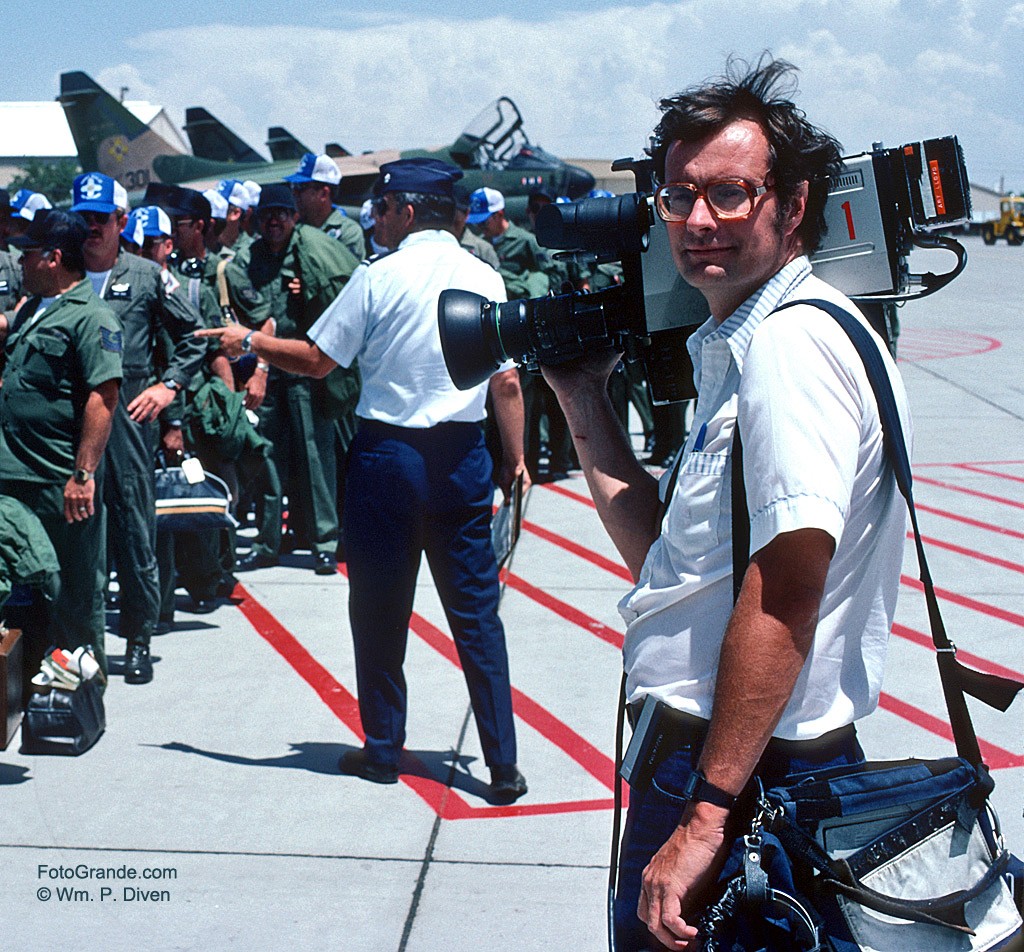
Jim Fish shooting video for KGGM-TV Albuquerque at Kirtland Air Force Base, 1983. Photo © William P. Diven
Fish grew up in El Paso where the white kid picked up the nickname Jaime Pescado in the very bilingual city. He raced ambulances in the early 1960s when the first ambulance to the scene got the business or the bodies, and then he chased them peddling Polaroids of spot news to local TV stations. He parlayed that into reporter-photographer staff jobs before dirty cops ran him out of town.
That came after he learned a judge was signing blank search warrants leaving cops to fill in the details when and as needed without the nicety of a sworn statement of probable cause. He pilfered a few from the judge’s office, and a clean cop warned him he was about to be the surprise guest at a bring-your-own-evidence party. So he moved on to bigger markets until the heat was off.
As a child of the 1940s, he came of age with the Beat Generation and didn’t make the transition to the hippie 1960s. That didn’t stop him from relocating to San Francisco, coincidentally around the Summer of Love, giving him credible tales of passing a joint to Jerry Garcia in the Grateful Dead’s Haight-Ashbury home and attending one of Ken Kesey’s parties but leaving after the Hell’s Angels arrived. He wasn’t in California long before heading back to El Paso.
Fish didn’t die, he croaked, as was his preferred term, just over four years ago from cascading organ failure at age 67. I drove him home after the previous hospital stay and heard from a mutual friend a few days later he was back in after another fall. Next came the late-night call from a doctor, who’d found my name on some ancient document, reporting on major surgery and asking how to proceed even though my legal status was dubious at best.
Another mutual friend and I separately told the doc the same thing: keep Jim as comfortable as you can. A couple of nights later around 1 a.m. came the call that he was gone.
Word Origin and History
Croak; v. early 14c., crouken, imitative or related to Old English cracian (see crack(v.)). Slang meaning “to die” is first recorded 1812, from sound of death rattle. Related: croaked; croaking. — Dictionary.com
Fish wanted his body left to science, which made the most of him when he was alive and a regular patient at the university teaching hospital. He neglected to make such arrangements, and with no family stepping forward, the county and its contract mortuary lost his body, at least on paper, for a few months. Four years later he’s now ash in dust.
The obituary below tells more about Jim’s life and career and explains why there was no family around. For the record, Jim wasn’t Jim or Jaime either. He was John Michael Kile,
A group of us who knew Fish from a regular and friendly poker group of years past pondered buying his ashes out of hock, but that tallied over $1,000 initially discounted to $485 when the county service was announced last week. With so many ex-newsies in the group, no one has that kind of walkin’-around money.
And we never did decide what we’d have done with his remains. My suggestion of turning a nice urn into something of a traveling trophy for the occasional games of chance got little traction. Macabre, perhaps, and spouses disapproved. But Fish would have laughed.
Today’s service, with its Protestant, Catholic and Jewish trappings, wouldn’t have appealed to Fish although he could be tolerant and generous in his curmudgeonly way. It ended with a funeral director dismantling donated bouquets so mourners could each toss a flower onto the casket as TV and newspaper photographers did their work. I waited until the line was almost gone to be last carefully dropping a rose onto the polished surface where it scattered most of the others that hadn’t already slid off.
And that appeared to be that. But as people shuffled away in the sand and the mortuary workers began removing their hardware and grass mats, a woman of about 30 approached, accepted a flower, stood a few moments and let it fall gently into the grave. Fish wasn’t the only one who had a friend say goodbye.
* * * * * * * * * * * * * * * * * * * *
Dec. 9, 2011
I discovered first-hand yesterday how newspapers are making up for all that classified advertising they lost to Craigslist by charging out the wazoo for obituaries.
As you may recall, Jim Fish died seven months ago today, and when I first checked on an obit was told nothing would be published until a mortuary could confirm I wasn’t perpetrating a hoax.
That led to a long delay while a state medical investigator in Albuquerque performed due diligence in trying–and failing–to find any surviving family. Then Jim’s body got lost, at least on paper, as it was routed from the medical investigator through the Bernalillo County bureaucracy to the contract mortuary handling indigent remains.
Now that’s resolved, but my plan to publish an obituary in El Paso fell apart when the price came in at a week’s salary plus $50 to add a photo. So, I think Jim would understand why I abandoned the project and instead post his obit here.
—–
James E. Fish, journalist, portrait photographer, poker dealer, blogger and contrarian, died May 9, 2011, at an Albuquerque, N.M., hospital from multiple infirmities. He was 67.
Born John Michael Kile in 1943 somewhere in Texas, he was adopted that year into the home of Eugene A. and Irene Morrison Fish of El Paso. He graduated from El Paso Technical High School and attended Texas Western College (now UTEP) majoring in bridge in the student union where the KTSM-TV newsroom could reach him by phone for news assignments.
After working on staff as reporter-photographer for KTSM-TV 1963-67 and KROD-TV 1967-68, he moved to WCKT-TV Miami as documentary-unit photographer 1969-71 and WBEN-TV Buffalo 1971-72 where he covered the Attica Prison riot.
Back in El Paso 1972-77 he became chief photographer at KELP-TV (later KVIA) and founding reporter-producer of the Pro News Probe consumer action-line reports. Other journalism posts included reporter-photographer KGGM-TV Albuquerque, N.M., 1982-85 and assistant news director/reporter-photographer KZIA-TV, Las Cruces, N.M., 1990-91.
During his news career Jim won awards from the El Paso Press Club, Texas Bar Association, and International Association of Firefighters and shared in Robert F. Kennedy and Green Eyeshade awards for documentaries produced in Miami.
Jim dealt poker in Nevada at the Mizpah Casino in Tonopah 1980-82 and El Dorado Hotel and Casino in Reno 1985-88. He last worked with a camera as a portrait photographer traveling West Texas and the Rocky Mountain states for Olin Mills Inc. 1991-95.
In his later years Jim settled in Albuquerque playing casino poker and blogging as The Far Out Fish Files.
Jim was preceded in death by his parents, two stepsiblings from his father’s first marriage and an adoptive sister, Carole Irene. Another adoptive sister, Beverly Ann, may survive him. Also mourning his passing are friends and colleagues who remember him as a journalist of great integrity and easy outrage and as a skilled card player as honest as a gambling man can be.
Dying indigent and without known surviving family, he recently was cremated at public expense. Services were held in September with a toast to Jim’s memory over a friendly game of chance.

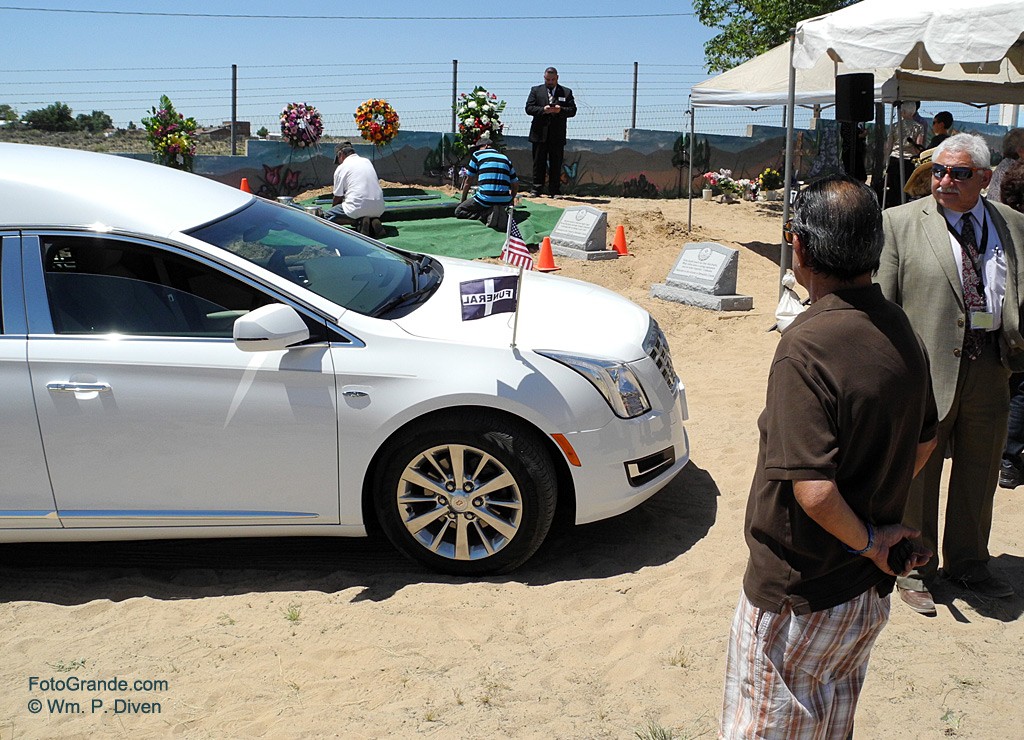
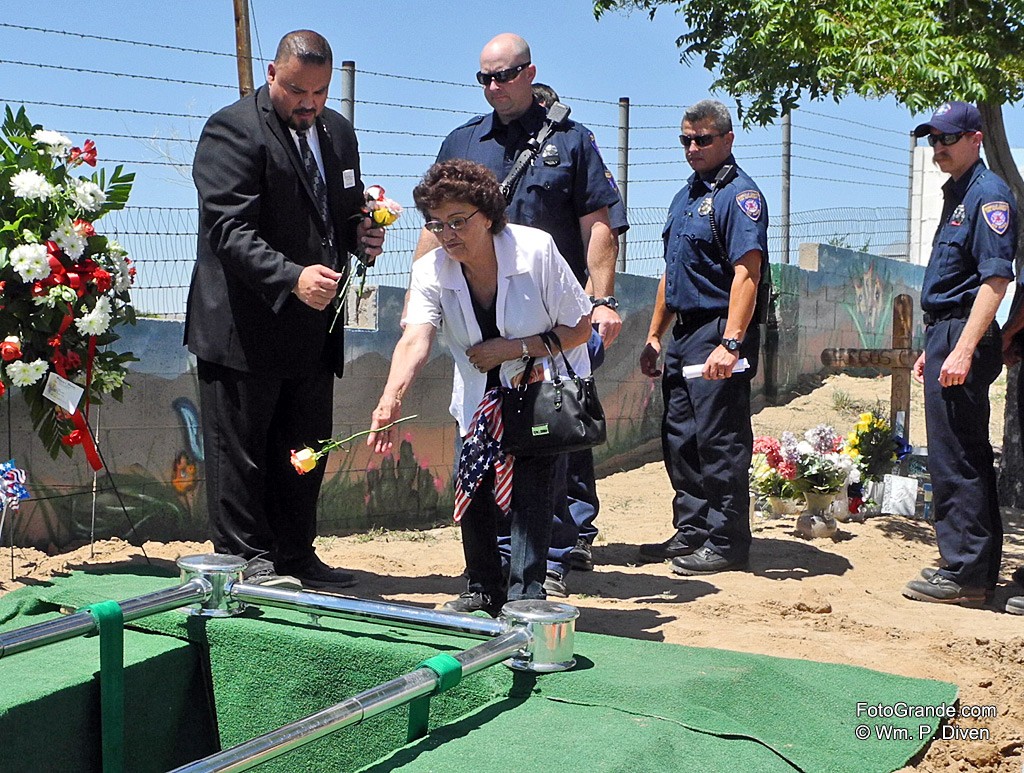
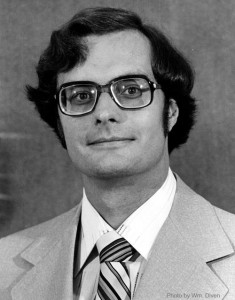
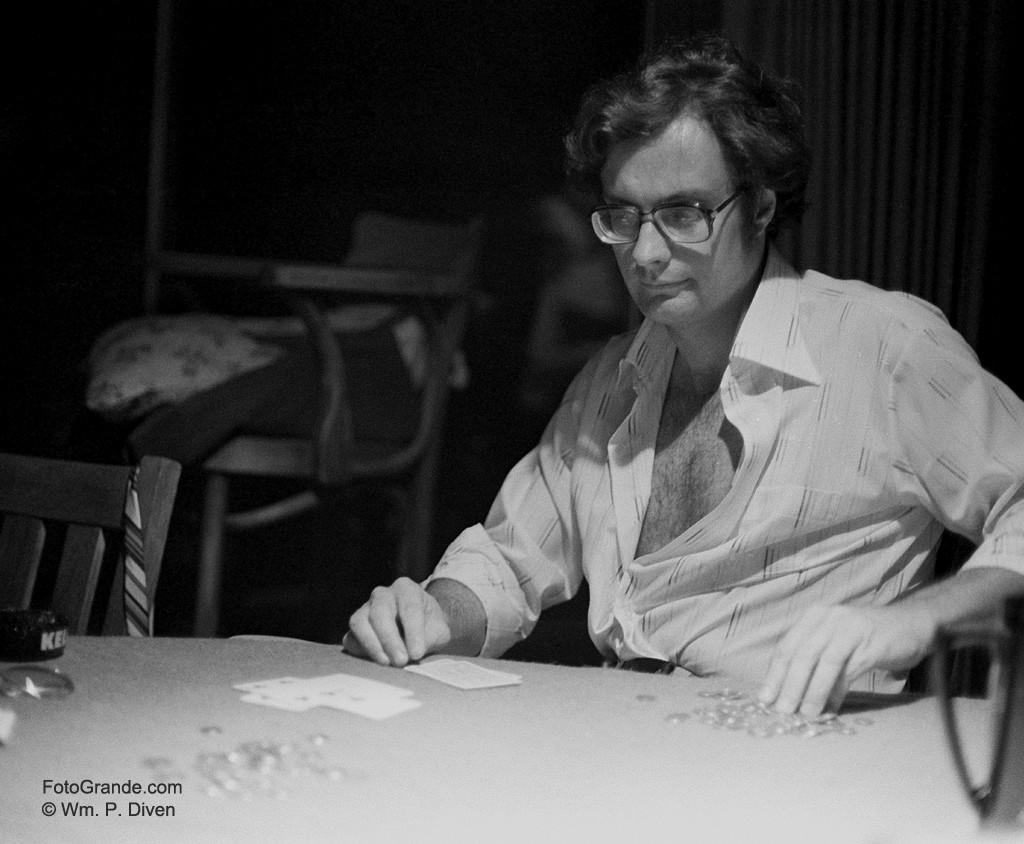

Fish was lucky to have friend like you to see him through to the very end. Write On Diven!